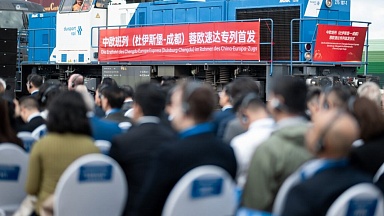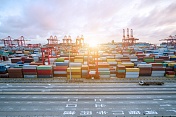This was announced by Beijing Transport Eurasia (BTW). The service will run every Sunday in this direction and is thereby a regular service. «The train runs via Kaliningrad», said Wanxy Dong, Managing Director of BTE. Kaliningrad is a Russian exclave between Poland and Lithuania. Freight trains regularly run via this route to avoid the busy border crossing between Poland and Belarus (Malaszewicze-Brest).
Train to Rotterdam
It is not the first service to reach Rotterdam via the Kaliningrad route. In November last year, the Rotterdam-Chengdu multimodal route via the port of Kaliningrad was established for container transportation between Europe and China.
Rotterdam is also a stop on the Chengdu Europe Rail Express. This is a cooperation between several parties, to extend the regular Chengu-Tilburg service with shuttle trains to the port of Rotterdam.





